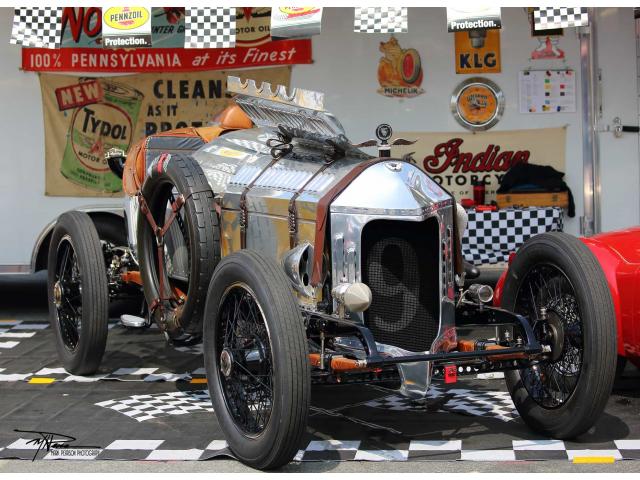1917 Hall-Scott The Four-A-7A
- Brand: Hall-Scott
The 1917 Hall-Scott Four-A-7A was a heavy-duty gasoline engine produced by the Hall-Scott Motor Car Company of Berkeley, California. The engine had a displacement of 1,183 cubic inches (19.4 liters) and was designed for use in heavy trucks and other commercial vehicles.
The Four-A-7A was a four-stroke, six-cylinder engine with a bore of 7 inches (177.8 mm) and a stroke of 9 inches (228.6 mm). It had a rated output of 140 horsepower at 1,200 rpm and a peak output of 240 horsepower at 1,600 rpm. The engine was air-cooled and featured overhead valves, which were advanced for the time.
The Four-A-7A was a significant improvement over earlier Hall-Scott engines, which were often criticized for their weight and complexity. The new engine was lighter and more compact, and it also featured a simplified ignition system and a more efficient cooling system.
The Four-A-7A was widely used in heavy-duty trucks and buses, as well as in military vehicles during World War I. It was also used in some early racing cars, including the 1917 Hall-Scott Special, which set a speed record of 101.75 miles per hour (163.8 km/h) at the Indianapolis Motor Speedway in 1917.
Overall, the Hall-Scott Four-A-7A was an important milestone in the development of heavy-duty gasoline engines and helped to establish Hall-Scott as a leading producer of engines for commercial and military use.
Source: Conceptcarz, Motorsport, Flickr, Tamsoldracecarsite
| Specification | |
| Production Start | 1917 |
| Country of origin | USA |


































